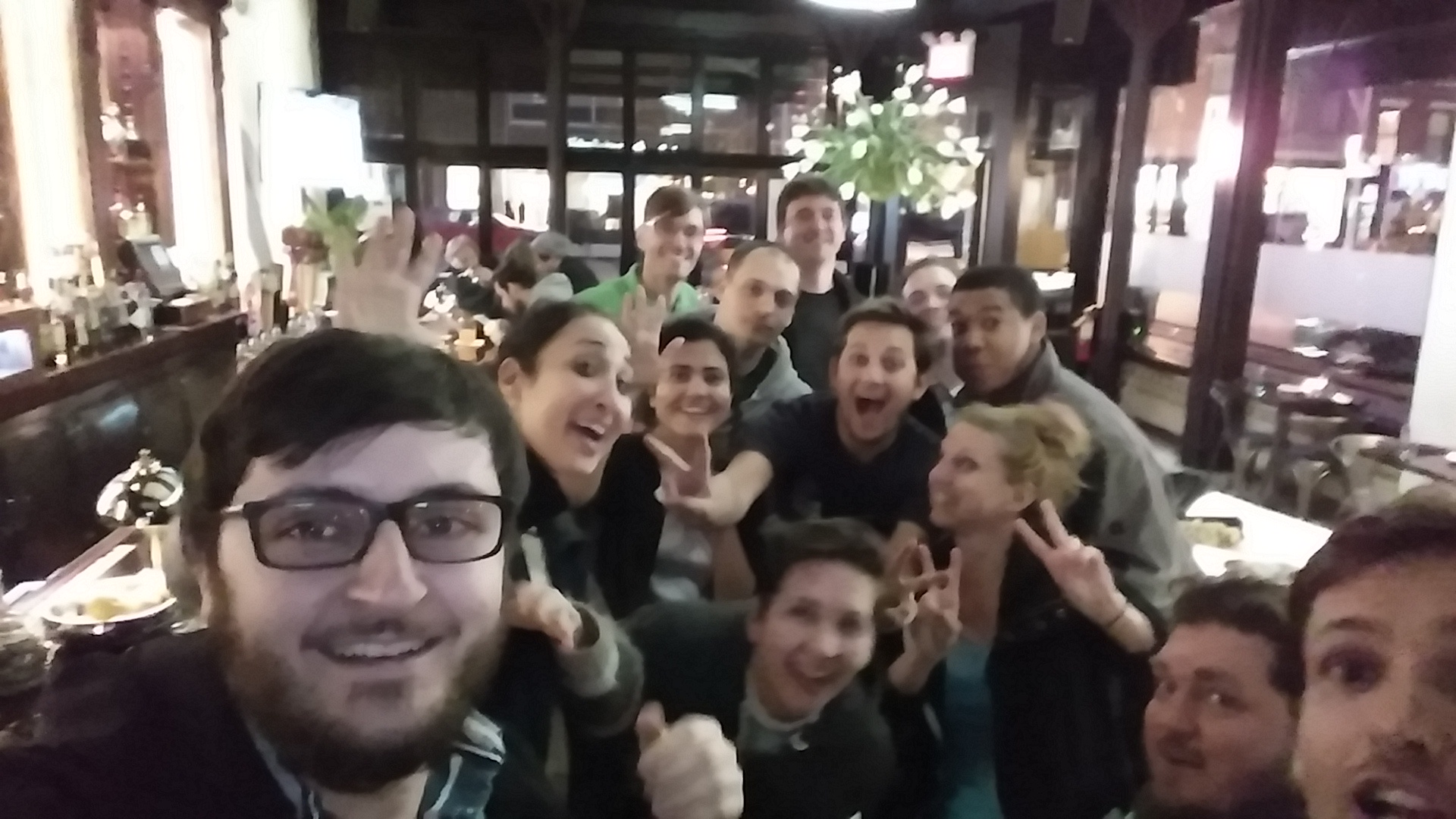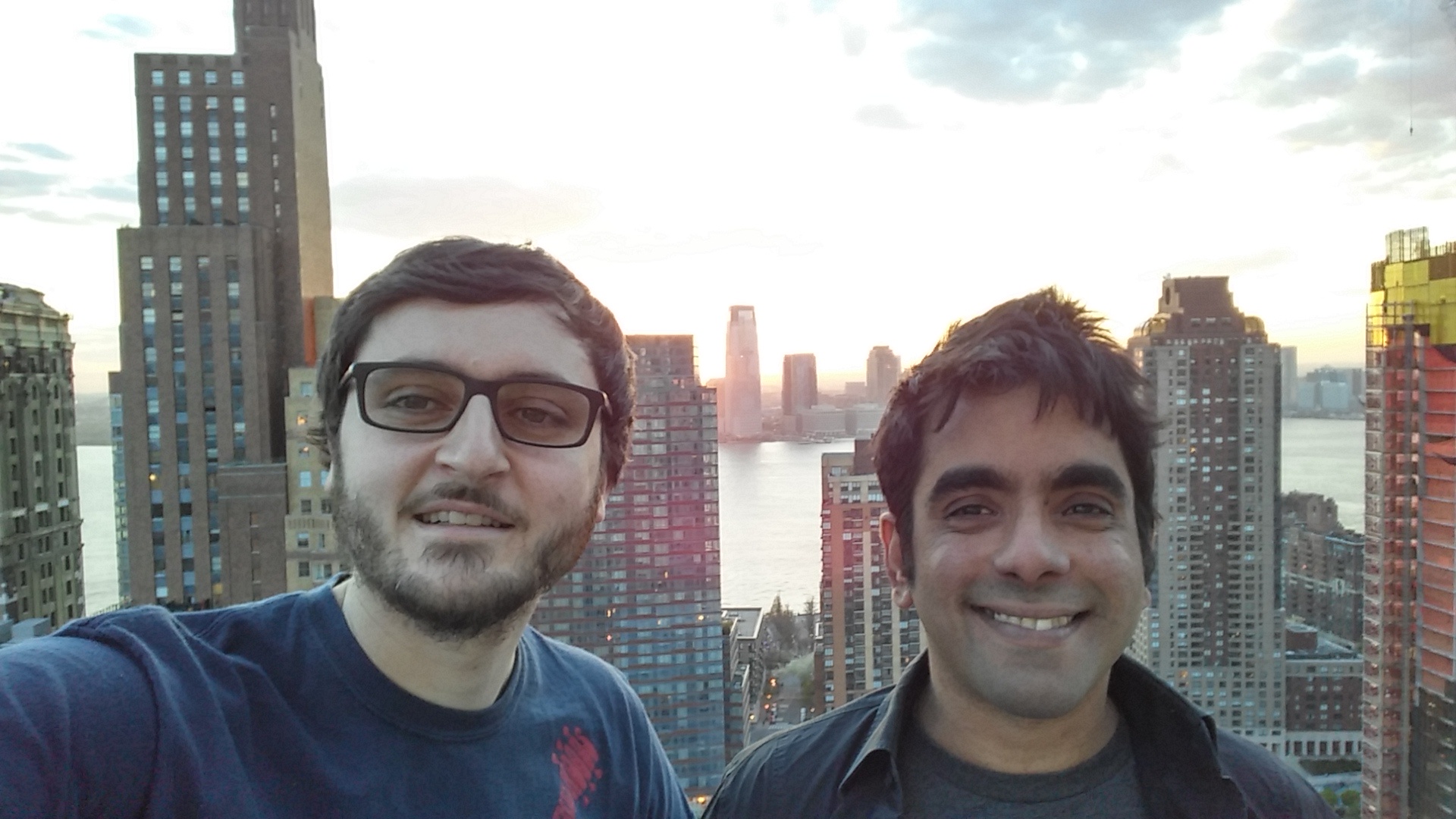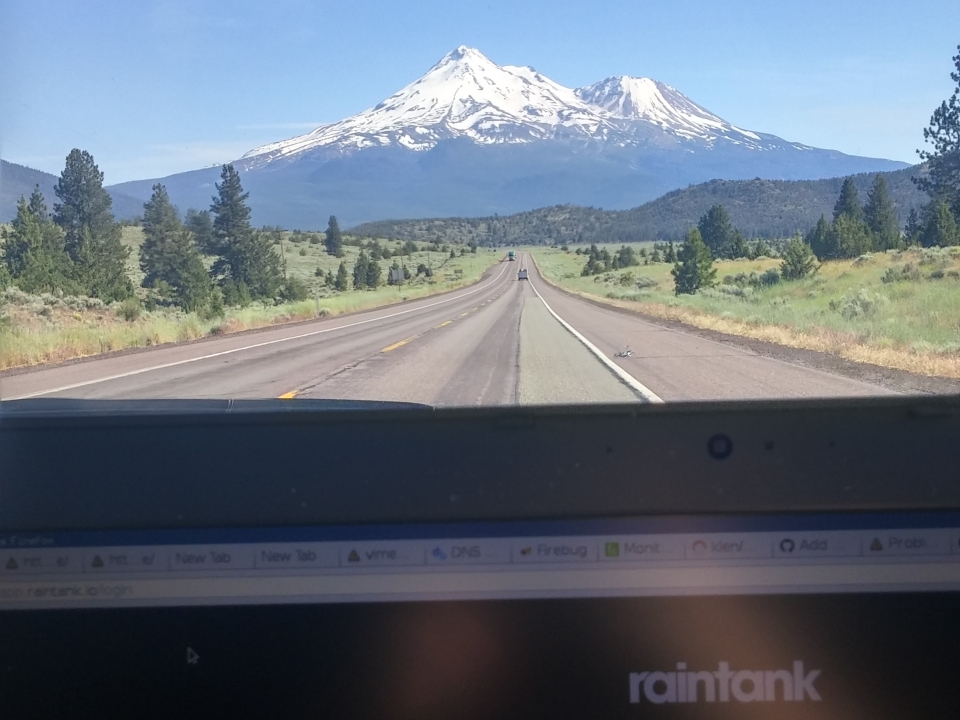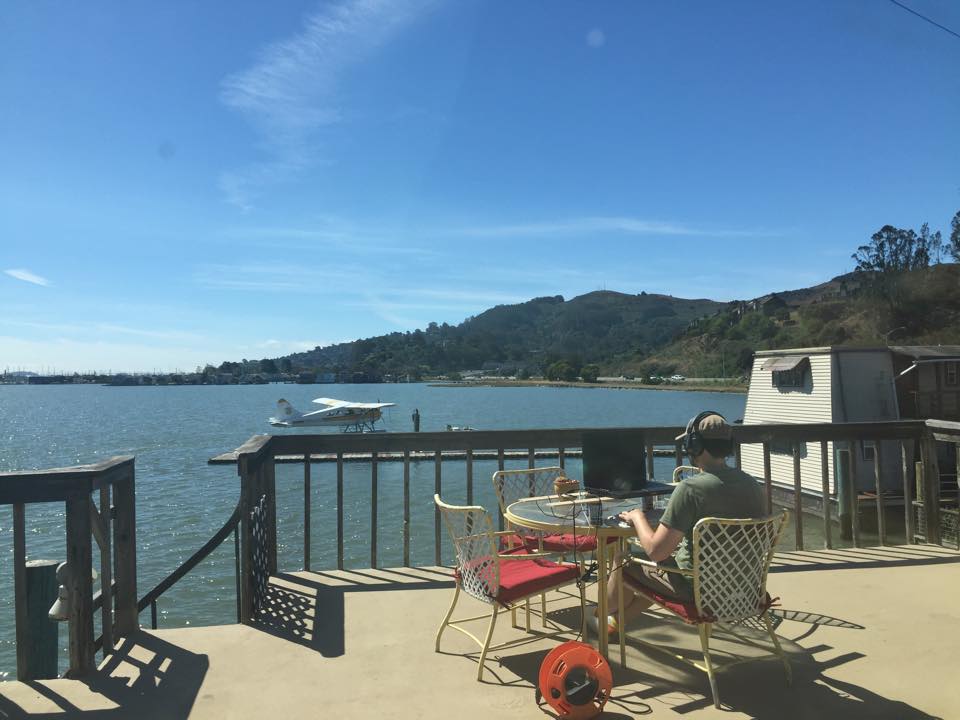Focusing on open source monitoring. Joining raintank.
Goodbye Vimeo
It's never been as hard saying goodbye to the people and the work environment as it is now.
Vimeo was created by dedicated film creators and enthusiasts, just over 10 years ago, and today it still shows.
From the quirky, playful office culture, the staff created short films,
to the tremendous curation effort and staff picks including monthly staff screenings where we get to see the best of the best videos on the Internet each month,
to the dedication towards building the best platform and community on the web to enjoy videos and the uncompromising commitment to supporting movie creators and working in their best interest.
Engineering wise, there has been plenty of opportunity to make an impact and learn.
Nonetheless, I have to leave and I'll explain why. First I want to mention a few more things.

In Belgium I used to hitchhike to and from work so that each day brought me opportunities to have conversations with a diverse, fantastic assortment of people. I still fondly remember some of those memories. (and it was also usually faster than taking the bus!)
Here in NYC this isn't really feasible, so I tried the next best thing. A mission to have lunch with every single person in the company, starting with those I don't typically interact with. I managed to have lunch with 95 people, get to know them a bit, find some gems of personalities and anecdotes, and have conversations on a tremendous variety of subjects, some light-hearted, some deep and profound. It was fun and I hope to be able to keep doing such social experiments in my new environment.
Vimeo is also part of my life in an unusually personal way. When I came to New York (my first ever visit to the US) in 2011 to interview, I also met a pretty fantastic woman in a random bar in Williamsburg. We ended up traveling together in Europe, I decided to move the US and we moved in together. I've had the pleasure of being submerged in both American and Greek culture for the last few years, but the best part is that today we are engaged and I feel like the luckiest guy in the world. While I've tried to keep work and personal life somewhat separate, Vimeo has made an undeniable ever lasting impact on my life that I'm very grateful for.
At Vimeo I found an area where a bunch of my interests converge: operational best practices, high performance systems, number crunching, statistics and open source software. Specifically, timeseries metrics processing in the context of monitoring. While I have enjoyed my opportunity to make contributions in this space to help our teams and other companies who end up using my tools, I want to move out of the cost center of the company, I want to be in the department that creates the value. If I want to focus on open source monitoring, I should align my incentives with those of my employer. Both for my and their sake. I want to make more profound contributions to the space. The time has come for me to join a company for which the main focus is making open source monitoring better.
Hello raintank!
Over the past two years or so I've talked to many people in the industry about monitoring, many of them trying to bring me into their team. I never found a perfect fit but as we transitioned from 2014 into 2015, the stars seemingly aligned for me. Here's why I'm very excited to join the raintank crew:- I'm a strong believer in open source. I believe fundamental infrastructure tooling should be modifiable and in your control. It's partially a philosophical argument, but also what I believe will separate long lasting business from short term successes.
SaaS is great, but not if it's built to lock you in. In this day and age, I think you should "lock in" your customers by providing a great experience they can't say no to, not by having them build technical debt as they integrate into your stack.
That said, integrating with open source also incurs technical debt, and some closed source service providers are so good that the debt is worth it. But I don't believe this lasts long term, especially given the required pricing models. I think you can entice customers more by lowering the debt they build up (i.e. use standardized protocols, tooling and making it easy for them to leave) as they adopt your service.
raintank's commitment to open source is not a gimmick but stems from a fundamental conviction that 100% open source is the right thing to do. That by providing freedom, you get loyalty. I think they came up with a good business model that combines the benefits of SaaS with those of open source. At least it's a bet I want to take. It's not an easy feat but I think we got a good formula. (basically openSAAS, the stack is open source, integrates in the wider ecosystem, you can run it yourself, you own your data, you can use our SAAS, or create a mixed setup.) - Something I value a lot in coworkers, besides "technical" abilities is emotional intelligence and professional maturity. Part of me thinks it's a vastly underestimated quality in general, although perhaps I just happen to find it more important than average. Either way, the new team seems solid on both fronts. I'm mostly impressed by the founder/CEO Raj Dutt who has shown a very personal and graceful approach.
Strong high-stakes relationships with people in general, and coworkers in particular are a very worthy pursuit and two months in I can still vouch for the level of alignment and maturity that I haven't experienced before.

- I (and my fiancee) want to see the world. The common conception that significant leisure travel can't be combined with hard, or even normal amounts of work seems so backwards to me. Today more than ever, we have globalization, we are developing a sharing economy (airbnb, lyft, ...). There's no reason we can't do great work while enjoying our personal time to the fullest. Working remotely, and/or with remote colleagues requires more discipline but I simply only want to work with disciplined people. Working on a fixed schedule, in a fixed office location is needlessly arcane, constrained and inefficient. It puts a damper on life. Almost all software companies I know see open office plans as a great thing, but it's usually an attempt at compensating for employee's poor communication skills, forcing them to talk to the detriment of people who need focus and get distracted. Isolation of workers does not preclude healthy communication and collaboration. I get a lot more done in isolation, with sync-ups and face-to-face when appropriate, especially if it's on my schedule. Working remote is a great way to facilitate this and I'm happy that raintank not only agrees with the idea, but actually encourages travel, and encourages me to follow whatever time allocation works best for me. I work hard but we travel where ever we want, we'll have plenty of time to spend with our families in Belgium and Cyprus. And yet I don't think I ever worked this closely with anyone.
- I've always wanted to be in a company from the start and experience the "true" start-up feel. I have a lot of opinions on organization, culture, and product and so I'm glad to have the opportunity to make that kind of impact as well.

OK, so what am I really up to?
Grafana is pretty much the leading open source metrics dashboard right now. So it only makes sense that raintank is a heavy Grafana user and contributor. My work, logically, revolves around codifying some of the experience and ideas I have, and making them accessible through the polished interface that is Grafana, which now also has a full time UX designer working on it. Since according to the Grafana user survey alerting is the most sorely missed non-feature of Grafana, we are working hard on rectifying this and it is my full-time focus. If you've followed my blog you know I have some thoughts on where the sweet spot lies in clever alerting. In short, take the claims of anomaly detection via machine learning with a big grain of salt, and instead, focus on enabling operators to express complex logic simply, quickly, and in an agile way. My latest favorite project, bosun exemplifies this approach (highly recommend giving this a close look).
The way I'm thinking of it now, the priorities (and sequence of focus) for alerting within Grafana will probably be something like this:
- cover the low hanging fruit: simple threshold checks with email notifications actually go a long way
- gradually provide more power and sophistication (reduction functions, boolean logic, etc), while keeping things in a nice UI
- provide full-on integration with advanced alerting systems such as Bosun. Iterative workflow, Signal/noise analysis, etc
 It may look like I'm not doing much from my temporary Mill Valley office, but trust me, cool stuff is coming!
It may look like I'm not doing much from my temporary Mill Valley office, but trust me, cool stuff is coming!
@name